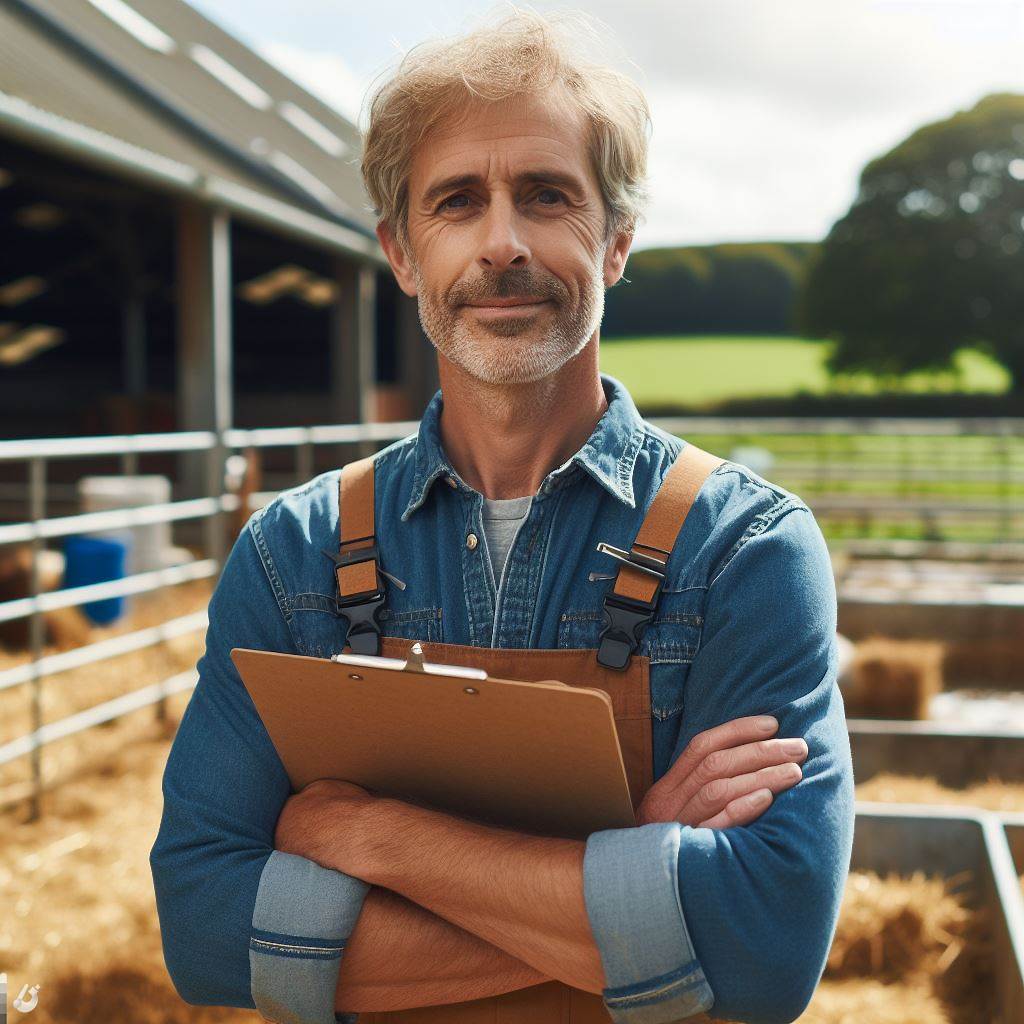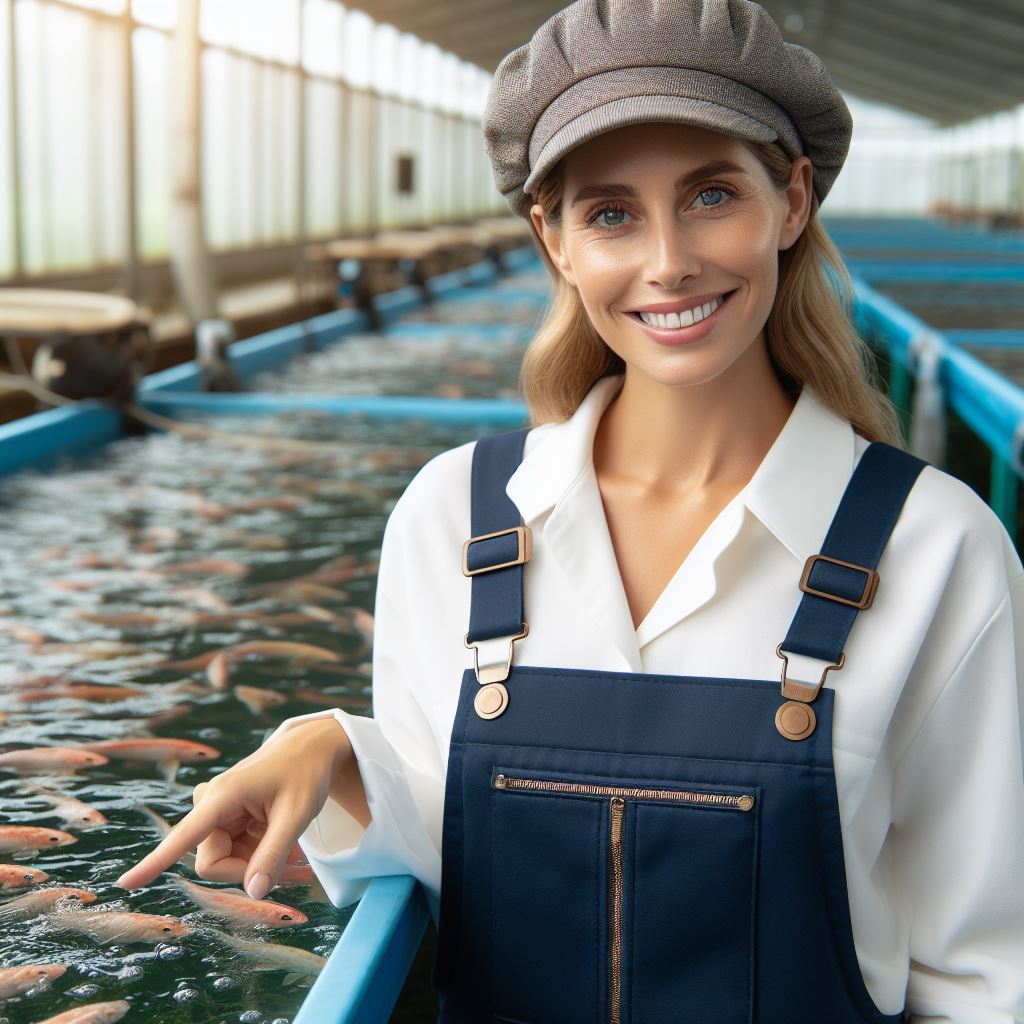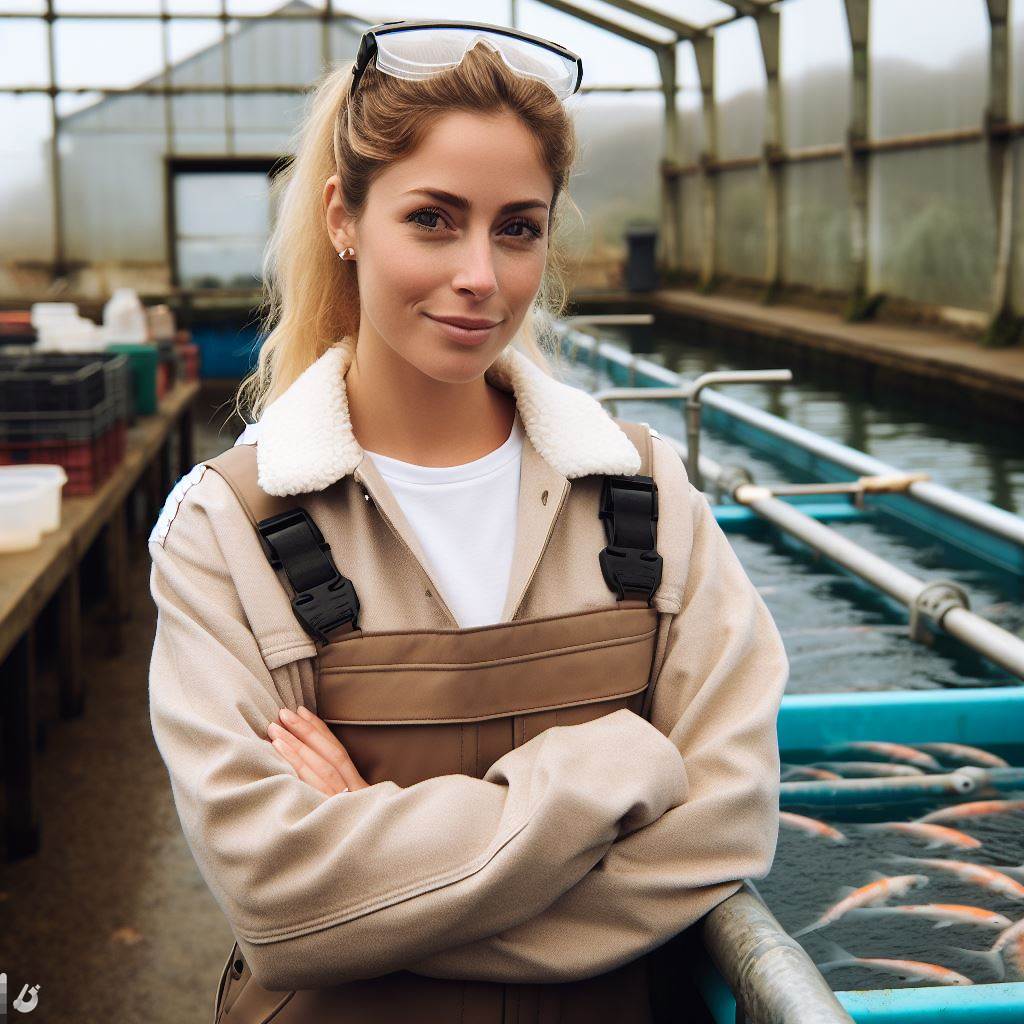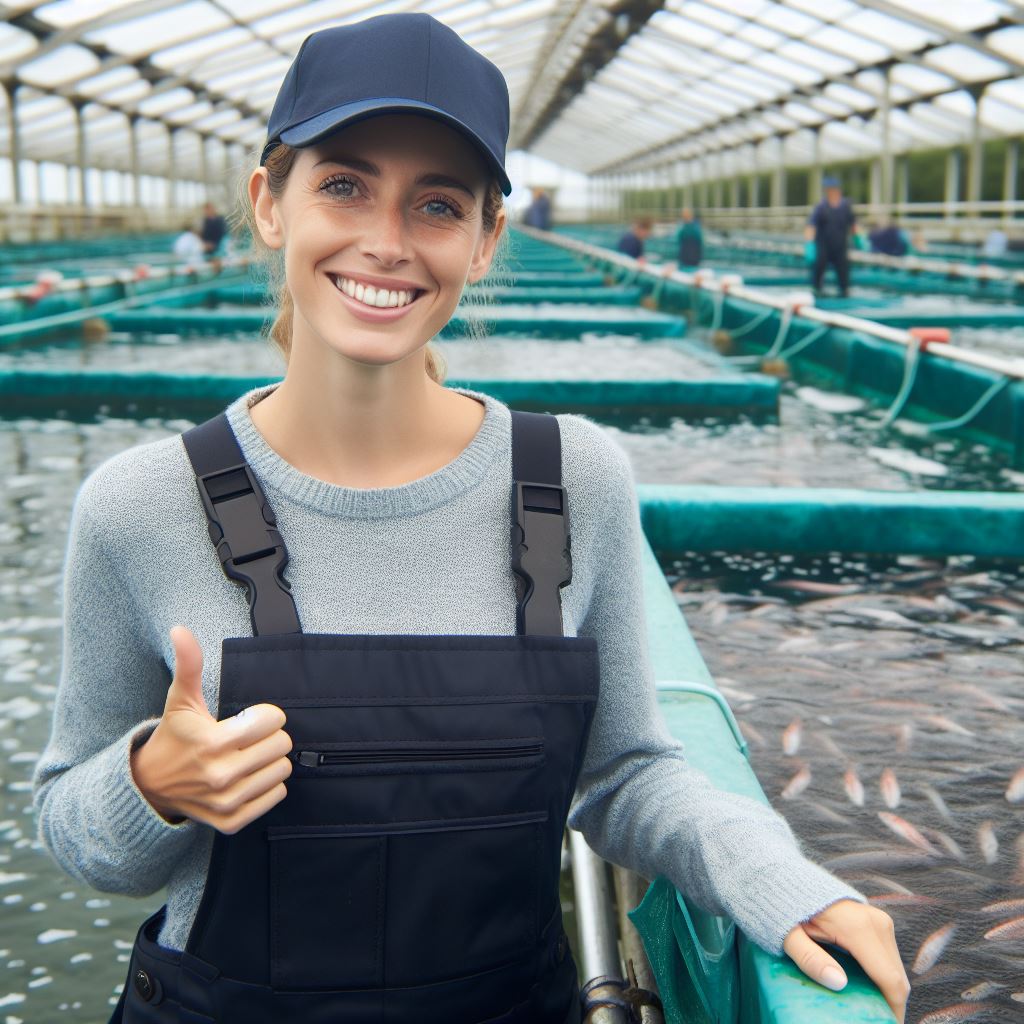Introduction
Animal welfare in UK farming demands scrutiny. High standards and care are pivotal for ensuring ethical treatment.
Livestock’s well-being directly correlates with farming practices. Neglecting standards jeopardizes not only animals’ lives but also the industry’s reputation.
This post delves into the critical nexus between farming practices, standards, and animal welfare. As consumers demand transparency, ethical farming becomes imperative.
The following sections dissect the current state of affairs, scrutinize existing standards, and propose actionable measures to elevate animal welfare in UK farming.
In an era where conscientious choices shape industries, prioritizing the humane treatment of animals isn’t just an option—it’s an ethical imperative.
Legislation and Regulations in Animal Welfare
Overview of the main laws and regulations governing animal welfare in UK farming
- The Animal Welfare Act 2006 is the primary legislation that sets out the basic welfare needs of animals in the UK.
- The Welfare of Farmed Animals (England) Regulations 2007 specifically target the welfare of farmed animals.
- The Welfare of Animals at the Time of Killing (England) Regulations 2015 ensures humane slaughter in UK farming.
- The Wild Animals in Circuses (No. 2) Regulations 2019 prohibits the use of wild animals in circuses.
- The Animals (Scientific Procedures) Act 1986 protects animals used in scientific experiments.
- The Cattle Identification Regulations 2007 ensure proper identification and traceability of cattle.
Role of organizations in enforcing these regulations
The Animal Welfare Act plays a crucial role in ensuring the welfare of animals in UK farming.
It sets the legal framework for animal welfare standards and establishes offenses for anyone who mistreats or neglects animals.
The Act is enforced by several organizations, including the Royal Society for the Prevention of Cruelty to Animals (RSPCA).
The RSPCA is a leading animal welfare charity in the UK. It works closely with law enforcement agencies to investigate and prosecute cases of animal cruelty.
The organization has the authority to bring legal proceedings against individuals or businesses that breach animal welfare regulations.
It conducts inspections and provides advice to farmers to ensure compliance with the law.
In addition to the RSPCA, other organizations such as Animal Health and Welfare Board for England (AHWBE) and Trading Standards also play a significant role in enforcing animal welfare regulations in UK farming.
These organizations monitor and inspect farms, production systems, and transport operations to ensure compliance with the law.
It is important to note that the responsibility for ensuring animal welfare in UK farming extends beyond legislation and organizations.
Farmers themselves have a duty to care for their animals and comply with the regulations.
Regular training and awareness programs are provided to farmers to educate them about best practices and the legal requirements for animal welfare.
Basically, legislation and regulations are essential in upholding animal welfare standards in UK farming.
The Animal Welfare Act, along with other specific regulations, outlines the basic needs and rights of farmed animals.
Organizations like the RSPCA work tirelessly to enforce these regulations and protect animals from mistreatment.
However, it is a collective effort that involves farmers, organizations, and individuals to ensure the highest standards of animal welfare across the UK farming industry.
Farm Animal Welfare Standards
Various standards and guidelines for different farm animal species
- The welfare standards for cattle ensure that they have access to clean water, suitable shelter, and adequate space for movement.
- Poultry welfare guidelines focus on providing proper housing, suitable litter, and appropriate lighting to ensure their well-being.
- Pigs are subject to regulations that require appropriate housing, including access to bedding and adequate space for rooting and interaction.
Coverage of standards in aspects such as housing, healthcare, nutrition, and handling
- Housing: Standards ensure that farm animals are kept in facilities that provide comfort, protection, and freedom to express natural behaviors.
- Healthcare: Guidelines dictate that animals must receive appropriate veterinary care and prompt treatment for diseases and injuries.
- Nutrition: Standards ensure that animals receive a well-balanced diet that meets their specific nutritional needs.
- Handling: Guidelines emphasize the importance of gentle and skilled handling techniques to minimize stress and injuries.
Importance of standards in ensuring animals lead decent lives
Farm animal welfare standards play a crucial role in ensuring that animals lead lives free from unnecessary suffering and distress.
Firstly, these standards promote humane treatment and prevent cruel practices that could harm the physical and psychological well-being of animals.
By addressing aspects such as housing, healthcare, nutrition, and handling, the standards provide a framework for farmers to ensure animals’ basic needs are met.
For example, appropriate housing helps protect animals from extreme weather conditions, preventing unnecessary discomfort and potential health issues.
Regular access to veterinary care and prompt treatment prevent diseases from escalating, promoting overall animal health and reducing suffering.
A well-balanced diet not only supports animal health but also contributes to their development and growth.
Gentle handling techniques minimize stress, fear, and injuries, enabling animals to feel safe and secure in their environment.
Moreover, these standards help maintain consumer trust and confidence in the food produced by the farming industry.
By adhering to high animal welfare standards, farmers demonstrate their commitment to producing quality products while considering the welfare of the animals in their care.
Personalized UK Career Consulting
Receive tailored career guidance designed just for you. Get actionable steps and expert support to boost your career in 1-3 days. Take control of your career now.
Get StartedConsumers increasingly value and prioritize ethically sourced food, and meeting welfare standards helps fulfill this demand.
Furthermore, ensuring decent animal welfare standards also benefits the overall reputation and sustainability of the agricultural sector.
When farmers prioritize the well-being of their animals, it enhances their reputation as responsible stewards of the land and promotes long-term sustainability.
In a nut shell, farm animal welfare standards are essential in protecting the lives and well-being of animals.
By setting criteria for housing, healthcare, nutrition, and handling, these standards improve animal welfare and promote responsible farming practices.
Adherence to these standards not only benefits the animals but also plays a critical role in maintaining consumer trust and supporting the sustainability of the farming industry.
Read: Sustainable Practices in UK Aquaculture Tech
Monitoring and Compliance
Methods used to monitor adherence to animal welfare standards on UK farms
- Regular on-site inspections by government inspectors ensure compliance with animal welfare standards.
- Inspectors check the conditions of livestock housing, cleanliness, and access to food and water.
- They also assess the animals’ overall health, presence of any signs of injury or disease.
- Unannounced visits help to ensure that farms are consistently following the regulations.
- The use of CCTV surveillance systems allows for continuous monitoring and detection of any wrongdoing.
- Satellite imagery helps identify any potential issues with outdoor farming systems.
Roles of government inspectors, animal welfare organizations, and farmers’ commitment
- Government inspectors are responsible for enforcing animal welfare regulations and ensuring compliance.
- They conduct regular inspections and assess the overall well-being of animals on farms.
- Animal welfare organizations play a crucial role in monitoring and advocating for animal welfare standards.
- They collaborate with government agencies to investigate any reported concerns or violations.
- Farmers’ commitment to animal welfare is vital in maintaining high standards on their farms.
- They are responsible for providing the necessary care and attention to ensure the well-being of their animals.
- Farmers are encouraged to participate in training programs to enhance their knowledge and skills in animal welfare.
Penalties and consequences for non-compliance with regulations
- Non-compliance with animal welfare regulations can result in penalties and consequences.
- Depending on the severity of the violation, farmers may face fines or legal actions.
- Repeat offenders may face suspension or revocation of their farming licenses.
- Animal welfare organizations may publicly expose farms that consistently fail to meet the minimum standards.
- The reputation of non-compliant farms can suffer, leading to loss of consumer trust and potential business.
- Compliance with animal welfare regulations is not only a legal requirement but also necessary for ethical farming practices.
To sum it up, monitoring and compliance with animal welfare standards are crucial in ensuring the well-being of animals on UK farms.
Regular inspections by government inspectors, supported by animal welfare organizations, help enforce regulations.
Non-compliant farms face penalties, legal actions, and potential damage to their reputation.
Ultimately, adherence to these standards is not only the law but also a responsibility towards ethical and compassionate farming practices.
Read: Aquaculture in the UK: Education Pathways
Animal Care Initiatives
Various initiatives and programs in the UK farming industry are dedicated to improving animal welfare.
- These initiatives aim to ensure that animals are treated with care and respect throughout their lives.
- One such initiative is the Red Tractor Assurance scheme, which promotes responsible farming practices.
Industry bodies like Red Tractor Assurance play a significant role in promoting responsible practices
- Red Tractor Assurance sets standards for food safety, traceability, and animal welfare in UK farming.
- Farmers who adhere to these standards are awarded the Red Tractor logo, giving consumers confidence in their produce.
Innovative approaches and practices are being adopted to further enhance animal welfare in UK farming
- For instance, the use of technology, such as sensors and monitoring systems, helps farmers monitor animal health.
- Farmers use drones to survey large areas, finding potential risks and hazards.
- Additionally, precision farming techniques optimize animal nutrition and reduce environmental impact.
- Some farmers are even experimenting with alternative farming methods, such as vertical farming, to maximize space and resources.
- Collaborative efforts between farmers, scientists, and animal welfare organizations are also driving innovation.
- Through research and development, new approaches and practices are continuously being explored.
- The aim is to find sustainable and ethical solutions that improve animal welfare while maintaining efficient farming.
- Educational programs and training workshops are also being conducted to educate farmers on best practices.
- By equipping farmers with knowledge and skills, they can better care for their animals and meet industry standards.
- Animal care initiatives and programs constantly evolve to adapt to changing needs and advancements in the farming industry.
- The focus remains on improving animal welfare and ensuring the ethical treatment of animals in UK farming.
Overall, animal care initiatives in UK farming strive to enhance animal welfare through responsible practices and innovative approaches.
Industry bodies like Red Tractor Assurance play a vital role in setting standards and promoting transparency.
The adoption of technology, alternative farming methods, and collaborative efforts further contribute to improved animal welfare.
Ongoing efforts ensure UK farms treat animals with care and respect, making them animal welfare leaders.
Read: Aquaculture Law: UK Regulations Explained

Consumer Awareness and Choices
The Growing Consumer Interest in Animal Welfare and Sustainability in Farming
Consumers are increasingly interested in animal welfare and sustainability in farming due to various reasons. Firstly, there is a growing societal concern for the well-being of animals and the environment.
People are more conscious of the impact their actions have on the world around them.
Furthermore, consumers have become more aware of the link between animal welfare and the quality of the products they consume.
They understand that animals that are raised in healthy and humane conditions produce better-quality products. This awareness has led to a shift in consumer preferences towards ethically produced goods.
Additionally, the rise of social media and the ease of accessing information have made it easier for consumers to learn about the practices used in farming.
This increased transparency has fueled consumer interest in animal welfare, as they can now make more informed choices about the products they buy.
Your Dream Job Starts with a Perfect CV
Get a tailored CV and cover letter that captures your unique strengths and stands out in your industry. Let us help you make an unforgettable first impression.
Get StartedThe Impact of Consumer Demand on Farm Practices and the Market for Ethically Produced Products
Consumer demand plays a significant role in shaping farm practices and the market for ethically produced products.
When consumers demand better animal welfare standards, farmers have a financial incentive to meet these expectations. As a result, they implement practices that prioritize the well-being of animals.
This shift in consumer demand has also created a niche market for ethically produced products.
Farmers who prioritize animal welfare and sustainability can cater to this demand by creating products that align with consumers’ values.
This market segment offers higher prices and increased opportunities for farmers who prioritize animal welfare.
Furthermore, the impact of consumer demand extends beyond individual farms. As more consumers opt for ethically produced products, it creates a ripple effect throughout the agricultural industry.
This change encourages other farmers to adopt similar practices to remain competitive in the market.
The Importance of Informed Consumer Choices in Encouraging Better Animal Welfare Standards
Informed consumer choices are crucial in encouraging better animal welfare standards.
By actively seeking out and supporting ethically produced products, consumers send a powerful message to the farming industry.
This demand encourages farmers to prioritize animal welfare and sustainability, prompting changes in farm practices.
Moreover, informed consumer choices create a positive feedback loop. As more consumers choose ethically produced products, the market for these products expands.
This growth creates additional incentives for farmers to adopt higher animal welfare standards, further improving the overall welfare of animals in agriculture.
It is essential for consumers to stay informed about animal welfare standards and the practices used in farming.
By understanding the impact of their choices, consumers can make conscious decisions that align with their values.
This informed consumer behavior drives positive change in the industry and promotes better animal welfare overall.
Essentially, consumer interest in animal welfare and sustainability in farming is increasing.
This interest stems from societal concerns, understanding the link between animal welfare and product quality, and increased access to information.
Consumer demand has shaped farm practices and influenced the market for ethically produced products.
Informed consumer choices are pivotal in encouraging better animal welfare standards and driving positive change in the industry.
Read: Aquatic Health Management by UK Experts
Future Trends and Challenges
Emerging trends and challenges in the field of animal welfare in UK farming
- Increased consumer demand for ethically produced meat and dairy products challenges traditional farming practices.
- The rise of plant-based diets and alternative protein sources may impact the demand for animal products.
- Technology is playing a crucial role in monitoring and improving animal welfare standards in farming.
- The use of precision farming techniques, such as sensors and automation, can help detect and address animal welfare issues more effectively.
- Genetic engineering and selective breeding methods can be used to enhance animal health and welfare traits.
- Adaptation to climate change poses challenges to maintain optimal welfare conditions for farm animals.
- Antibiotic resistance and the need to reduce the usage of antibiotics in animal farming are pressing concerns.
Technological advancements and their potential implications for improving animal welfare
- Remote monitoring systems allow farmers to track animal behavior, health, and well-being in real-time.
- Wearable devices equipped with sensors can detect signs of distress or illness in individual animals.
- Automated feeding systems can provide personalized nutrition and prevent under- or overfeeding.
- Robotics and AI technology can automate tasks, minimizing stress and improving overall welfare conditions.
- Virtual reality simulation can provide training opportunities for farmers to learn and practice handling animals with care.
- Blockchain technology offers transparency in the supply chain, ensuring traceability and accountability in animal welfare standards.
Ongoing debates and areas where further improvement is needed
- The debate on the use of intensive farming methods continues, raising concerns about animal welfare.
- Enriched environments for animals, such as providing access to natural light and outdoor spaces, are still not universally implemented.
- Transportation of animals is an area that requires further improvement to minimize stress and injuries during transit.
- The slaughter process and stunning methods are controversial topics that demand stricter regulations and humane practices.
- Consumer education and awareness about the importance of animal welfare in farming need to be prioritized.
- Collaboration between farmers, animal welfare organizations, and policymakers is essential to drive positive change.
Most importantly, the future trends and challenges in the field of animal welfare in UK farming are intricately linked with emerging technologies, changing consumer demands, and ongoing debates.
Embracing technology like remote monitoring and automation, along with ongoing collaboration, can markedly elevate animal welfare in UK farming.
You Might Also Like: Foresters and Wildlife Conservation
Conclusion
Recap
Throughout this blog post, we delved into the intricate landscape of UK farming, unraveling the layers of ethical practices, humane treatment, and the critical importance of adhering to stringent welfare standards.
The cornerstone of our exploration has been the unyielding emphasis on maintaining high animal welfare standards in UK farming.
Call to action
As conscientious consumers and stewards of our environment, the responsibility now rests on our shoulders.
It is imperative to actively support initiatives and organizations that champion and advocate for improved animal welfare in farming.
By aligning our choices with ethical practices, we contribute to the broader movement towards a more compassionate and sustainable future.
Optimize Your LinkedIn for Success
Boost your LinkedIn profile with a professional bio, keyword-rich headline, and strategic recommendations that attract recruiters. Stand out from the crowd and get noticed.
Optimize NowThe journey through the intricacies of animal welfare in UK farming has underscored the interconnectedness of our choices and their profound impact on the well-being of animals, the environment, and our communities.
[E-Book for Sale]
500 Cutting-Edge Tech Startup Ideas for 2024 & 2025: Innovate, Create, Dominate
$19.99 • 500 Tech Startup Ideas • 62 pages
You will get inspired with 500 innovative tech startup ideas for 2024 and 2025, complete with concise descriptions to help you kickstart your entrepreneurial journey in AI, Blockchain, IoT, Fintech, and AR/VR.




